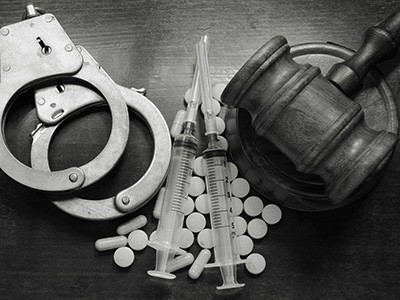 Drug cases are dismissed for a variety of reasons. Sometimes, when I point out defects in a prosecutor’s case, they realize that they will not be able to proceed with the case, and they are in a position where they have to dismiss it. If I file a motion to suppress evidence, and the judge grants that, then that could also force the state to dismiss the case. Certain evidence, which is inadmissible at the trial, could be fatal to the state’s case, and the state may have no choice but to dismiss it.
Drug cases are dismissed for a variety of reasons. Sometimes, when I point out defects in a prosecutor’s case, they realize that they will not be able to proceed with the case, and they are in a position where they have to dismiss it. If I file a motion to suppress evidence, and the judge grants that, then that could also force the state to dismiss the case. Certain evidence, which is inadmissible at the trial, could be fatal to the state’s case, and the state may have no choice but to dismiss it.
What Are The Top Misconceptions That People Have About Drug Trials?
Most people learn about trials through TV, or movies. This might provide a very basic or loose understanding, but in reality, there is much more to a trial. When I discuss this with my clients, I assume that they have little or no knowledge about trials. Therefore, I start from ground zero, and explain everything to them. I do this to make sure they have a full understanding of all the proceedings. In addition, judges frequently will ask defendants in certain situations, if they understand what a trial is, or what a trial does or certain aspects of a trial. They may also ask if they discussed this with their lawyer. Therefore, in that situation, I would rather repetitively explain, than short my client on any explanations. My client cannot make a good decision if they are not fully informed.
Can You Walk Us Through A Brief Timeline Of What Actually Happens At A Drug Trial?
At a drug trial, we first have to pick a jury, and this alone usually takes a full day to complete. When we interview all potential jurors, some of those jurors are excluded by the judge for cause, which means there was some legal reason that they could not serve on the jury. Both the state and the defense can exclude jurors for no legal reason at all. This is what is called the peremptory challenge. This is where the strategy of picking the jury comes in to play, because depending on what type of case it is, we have a number of these challenges, and we can get rid of anyone, because we do not like the way they look, or because of something that they said. We think they can be potentially prejudiced against our case, and it might not be open to our defense.
While this reason that we have to exclude them might not rise up to the level of legal reasons to exclude them, we do not have to tell anybody why we are dismissing them from the jury. We are entitled to do that. After we pick the jury, then we start the evidence portion of our trial. Both sides give opening statements, the state goes first. They go first, because they have the burden of proof, which is beyond a reasonable doubt. They would present their evidence, witnesses, and we in the defense would have the opportunity to cross-examine, and confront witnesses, and object to any evidence. When the state is done with their case, then the defense can present evidence, witnesses, or the defendant can testify in their own defense, or remain silent, and that would not be held against them.
When it is all over, both sides will give closing arguments. After the closing arguments the jury makes a unanimous decision whether the defendant is guilty, or not of the charges. A bench trial is the same concept, except we skip the part where we pick the jurors. At a bench trial, only the judge listens to the evidence, and makes the decision whether the defendant is guilty, or not.
How Does It Affect The Case If Either Police Or Other Witnesses Fail To Show Up For Trial?
I would say it is rare for a police officer, or a witness to fail, and not show up for a trial, but it does happen from time to time. For example, if a prosecution witness, or a police officer fails to appear in a case that is set for trial, the state’s attorney would make a motion for a continuance, and then it would be up to the judge whether to grant a continuance, or not. Generally, in that position, I would object, because if the judge does not grant them a continuance, we may be able to force them to dismiss a case, but ultimately that is only up to the judge.
Is The Original Plea Offer Off The Table If A Case Goes To Trial?
Usually all plea agreements are withdrawn once a trial has commenced. In very rare circumstances, a plea agreement might be negotiated during trial, but once a trial has gone to verdict, there are no agreements.
If Someone Is Found Guilty, Is The Punishment Typically Worse Than What The Plea Offer Was?
If you are found guilty, the punishment is not supposed to be worse, but frequently it is. Particularly after a jury trial, if it were a finding of guilt, your sentence would be a stricter penalty than if the individual pleaded guilty. Unfortunately, this is just part of the risk of going to trial.
For more information on Dismissal Of A Drug Case, a free initial consultation is your next best step. Get the information and legal answers you are seeking by calling [number type=”1″] today.
